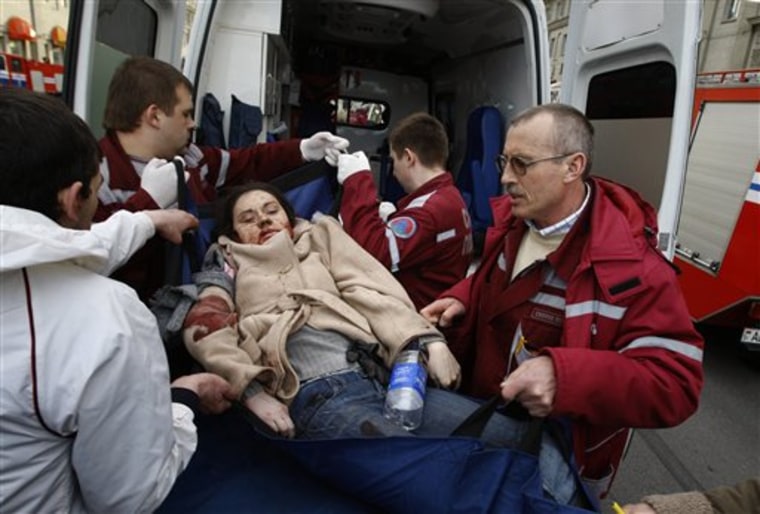The death toll after an explosion in a subway station in the Belarus capital of Minsk rose to 12 with 204 hospitalized, officials said Tuesday. An official said the blast Monday was a terrorist act.
President Alexander Lukashenko did not say what caused the explosion at the Oktyabrskaya subway station, but suggested outside forces could be behind it.
"I do not rule out that this gift could have been brought from outside," Lukashenko said. The authoritarian leader, under strong pressure from the West over his suppression of the opposition, has frequently alleged outside forces seek to destabilize his regime.
Deputy prosecutor-general Andrei Shved said the blast was a terrorist act, but did not give further details.
An Associated Press reporter at the scene saw heavily wounded people being carried out of the Oktyabrskaya subway station, including one person with missing legs.
Several witnesses told The Associated Press that the explosion hit just as passengers were stepping off a train about 6 p.m. local time (11 a.m. ET). The Oktyabrskaya station, where Minsk's two subway lines intersect, was crowded with transferring passengers at the end of the work day.
The station is within 100 yards of the residence of authoritarian President Alexander Lukashenko and the Palace of the Republic, a concert hall often used for government ceremonies.
Lukashenko visited the site about two hours after the blast and left without comment. He later ordered that the country's feared police to "call in all forces and turn everything inside-out" to investigate the blast.
Day of mourningBelarus' state security service put the death toll at 12 after the death of one injured person overnight. Wednesday was declared an official day of mourning.
The defense ministry said 204 people were in hospital, 26 of them in a serious condition.
One witness, Alexei Kiklevich, said at least part of the station's ceiling collapsed after the explosion.
Igor Tumash, 52, said he was getting off a train when "there was a large flash, an explosion and heavy smoke. I fell on my knees and crawled ... bodies were piled on each other."
He said he saw a man with a severed leg and rushed to help him.
"But then I saw he was dead," Tumash said, starting to cry.
Political tensions have been rising in Belarus since December, when a massive demonstration against a disputed presidential election sparked a harsh crackdown by police in which more than 700 people were arrested, including seven presidential candidates.
Lukashenko, who was declared the overwhelming winner of the disputed Dec. 19 election, has run Belarus, a former Soviet republic, with an iron fist since 1994. He exercises overwhelming control over the politics, industry and media in this nation of 10 million, which borders Russia, Ukraine, Poland and the Baltic nations.
Belarus' beleaguered opposition has been largely peaceful for years, with only a few clashes with police.
In July 2008, a bomb blast at a concert attended by Lukashenko injured about 50 people in Minsk. No arrests in the case were reported.
But Lukashenko said Monday that the subway blast could have been connected to that bombing.
